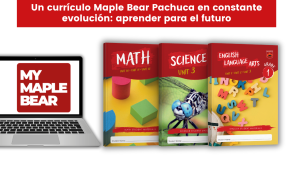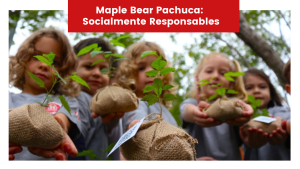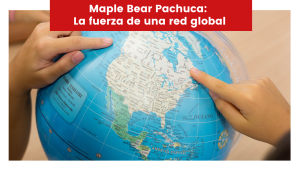Many people mistakenly believe that literacy development in pre-school children is only about teaching them to read through formal instruction.
In reality, early literacy development is a continuous process that begins in the first years of a child’s life. It is a complex task because oral language, reading, and writing skills are intimately linked and develop concurrently.
The first three years of exploring and playing with books, singing nursery rhymes, listening to stories, recognizing words, and learning to write a few of them are truly the building blocks for language and literacy development. Indeed, acquiring early literacy skills are essential to literacy development and should be the focus of early language and literacy programs, as they are at Maple Bear schools.
Formal instruction that requires young children who are not developmentally ready to read can actually be counter-productive and potentially damaging to children, who may begin to associate reading and books with failure.
Current early literacy theory emphasizes the more natural unfolding of skills through the enjoyment of books, the importance of positive interactions between young children and adults, and the critical role of literacy-rich experiences.
And, as children learn in this manner, they come to understand how oral language (listening to the sounds of words, associating meaning to the spoken word) and written language relate to each other.
This relatively new way of looking at early literacy development complements the current research supporting the critical role of early experiences in shaping brain development.
And did I mention early literacy development requires lots of parental support too? That goes without saying for who better than a child’s parents knows intimately how their child is developing?
Finally, as the late Bonnie Hill Campbell, who was an internationally known educational consultant specializing in the areas of literacy instruction and assessment, put it so well:
Literacy is a journey, not a race.
Rodney Briggs
President, Maple Bear Global Schools




Comentarios recientes